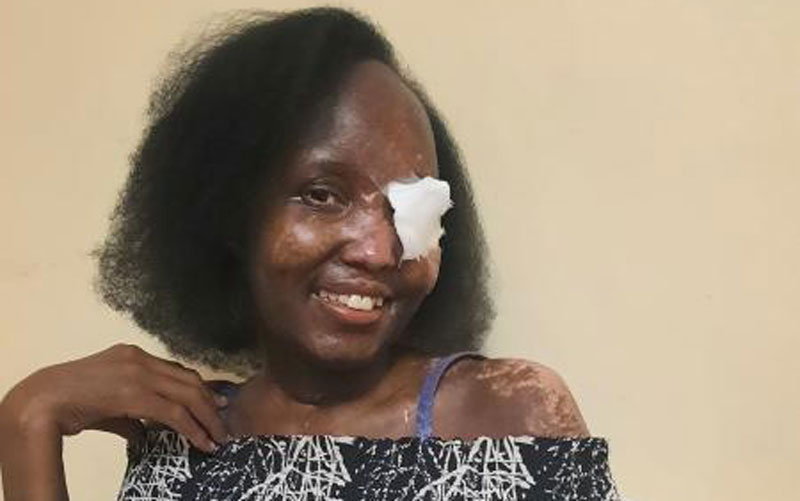Christine Hannah Gitaka from Muranga is recovering from Stevens-Johnson Syndrome, Toxic Epidermal Necrolysis (SJS/TEN)
×
The Standard e-Paper
Home To Bold Columnists

Drugs bought over the counter, like painkillers and antibiotics can result in detrimental health side-effects.
For Christine Hannah Gitaka from Murang’a County, they resulted in Stevens-Johnson Syndrome/Toxic Epidermal Necrolysis (SJS/TEN) after the 39-year-old reacted to her prescription medicine.







